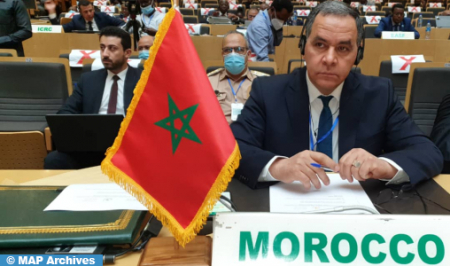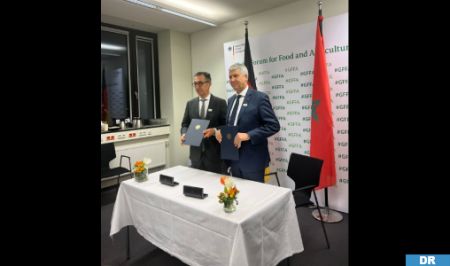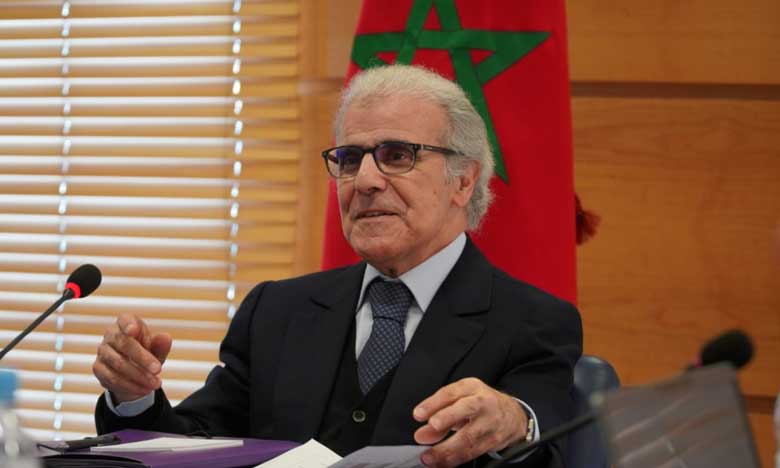Morocco, as chair of the African Union’s Peace and Security Council (AU-PSC) for March, reaffirmed on Wednesday in Addis Ababa that fighting violent extremism requires a proactive approach focused on prevention and reintegration.
Morocco’s Permanent Representative to the AU and UNECA, Mohamed Arrouchi, who chaired a PSC videoconference meeting devoted to “deradicalization as a leverage for the fight against violent extremism in Africa”, emphasized that addressing violent extremism goes beyond security interventions and requires a proactive approach centered on prevention and reintegration.
Deradicalization thus relies on the dissemination of enlightened counter-discourses by reference figures capable of deconstructing narratives of hatred and intolerance. It also involves offering credible alternatives to those who detach themselves from radical ideologies in order to break the cycles of radicalization, Arrouchi stressed.
Acting against radicalization therefore also means acting on its root causes, by strengthening the resilience of societies through education, employment and social inclusion, while consolidating governance and conflict prevention mechanisms, the Ambassador added.
In this connection, the diplomat stated that the Kingdom has been resolutely committed to a multidimensional strategy that places development at the core of its efforts to combat terrorism and extremism. He also recalled the various initiatives launched by Morocco to struggle against radicalization such as the National Initiative for Human Development, the strengthening of imams’ training, and the creation of the Mohammed VI Foundation for African Ulema.
The diplomat called for encouraging member states to tackle, in a comprehensive manner, the structural causes of terrorism and violent extremism, as well as the factors that fuel and facilitate them, based on the link between peace, security, and development, as advocated by the Tangier Declaration.
He emphasized the need to reaffirm the important role of women and youth, as drivers for change, in preventing and combating security threats on the continent, highlighting the necessity of prevention mechanisms tailored to refugee camps, where youth are particularly exposed to extremist ideological rhetoric.
He also called for strengthening prevention and early warning mechanisms to anticipate and reduce the risks of violent extremism in Africa.
The theme chosen by the Moroccan presidency of the PSC addresses the current realities and growing challenges posed by violent extremism in Africa. In response, deradicalization is positioned as an innovative lever.



